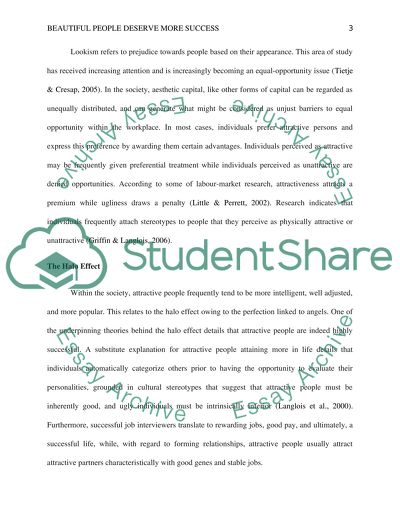Cite this document
(“Beautiful people deserve to be more successful than ugly people Essay”, n.d.)
Retrieved from https://studentshare.org/psychology/1474743-beautiful-people-deserve-to-be-more-successful
Retrieved from https://studentshare.org/psychology/1474743-beautiful-people-deserve-to-be-more-successful
(Beautiful People Deserve to Be More Successful Than Ugly People Essay)
https://studentshare.org/psychology/1474743-beautiful-people-deserve-to-be-more-successful.
https://studentshare.org/psychology/1474743-beautiful-people-deserve-to-be-more-successful.
“Beautiful People Deserve to Be More Successful Than Ugly People Essay”, n.d. https://studentshare.org/psychology/1474743-beautiful-people-deserve-to-be-more-successful.


